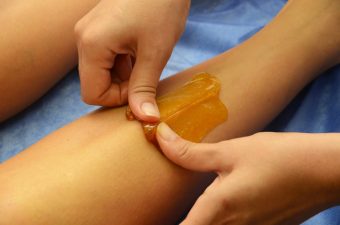 Vegan-friendly lip enhancers? CollPlant makes an animal-free collagen, using tobacco plants.
Vegan-friendly lip enhancers? CollPlant makes an animal-free collagen, using tobacco plants.
Advocates of vegetarianism often point out the detrimental effects of raising livestock on the environment. One frequently cited study is the Food and Agriculture Organization of the United Nations (FAO) report, Livestock’s Long Shadow, showing that livestock production is responsible for 18 percent of greenhouse gas emissions, a bigger share than that of transport. But even the most devout vegetarians are likely to avail themselves of drugs and bio-materials that owe their origins to animal subjects.
Is there a way to replace the role animals play in the bio-pharmaceutical industry where they are used for testing new drugs? And what about the use of pig and cow tissues for the repair of defective human organs?An alternative to animal drug testing is the use of computer modeling that simulates how novel drugs will impact on diseases. One specialist in this area, Ramat-Gan-based Optimata, is conducting virtual trials of cancer drug candidates on behalf of Teva Pharmaceuticals and other major pharmaceutical companies.
Now, another Israeli company, CollPlant, has found a way to replace animal sources for the production of collagen, a major bio-material used in the medical device industry. The Rehovot-based company has invented a way to generate human collagen in tobacco plants.
Collagen, a protein that forms much of the skin, ligament and bone tissues in the body, is used in more than 1,000 medical therapies, including bone grafts, shoulder operations, and heart valve repair.
Until now, pigs or cows, have been the major sources of therapeutic collagen. These livestock sources, along with another source — human cadavers — constitute serious safety risks, as undetected diseases can spread from the animal or human donor.
CollPlant’s green technology, enables a readily-accessible supply of collagen that is free from all of the safety and environmental problems associated with livestock. The company uses genetic engineering to endow the tobacco plants with the genes that produce human collagen; after the plants reach maturity, the collagen is extracted.
The company has been careful to grow the transgenic plants in a protected way. The plants are cultivated in isolated greenhouses in northern Israel; and the choice of tobacco as a plant carrier is not coincidental: tobacco is not part of the food chain.
Not only is CollPlant’s collagen safer, it also turns out to be superior to animal collagen, as it offers uniform properties and enhanced qualities.
Consequently, two of the world’s largest pharmaceutical companies, Pfizer and Edwards, recently entered into co-development deals with CollPlant for the development of innovative collagen therapies; Pfizer in the orthopedics field, Edwards for cardio products.
The financial public has also shown interest in the company’s business prospects and CollPlant last year began to trade on the Tel Aviv Stock Exchange (TASE:CLPT). Investors who have forsaken the tobacco industry may consider coming back to a tobacco-linked investment; only this time to a company that raises tobacco plants that save lives – and — protects the environment.
This guest post is written by Bernard Dichek, the editor of BioIsrael



